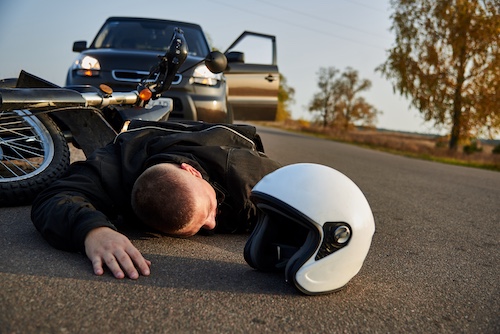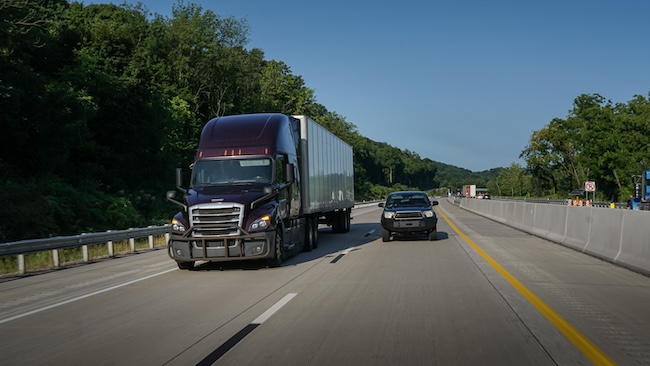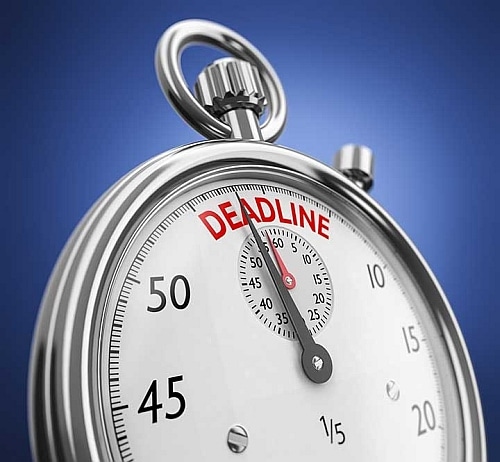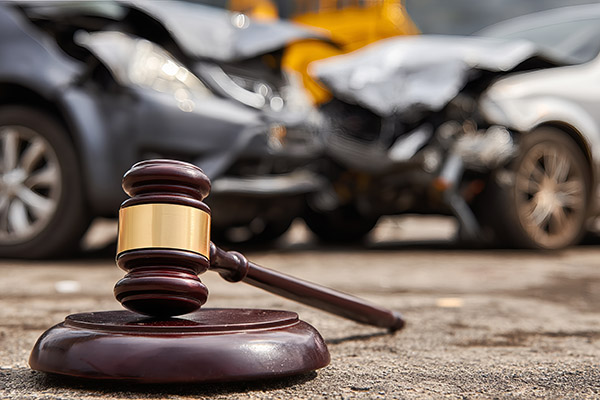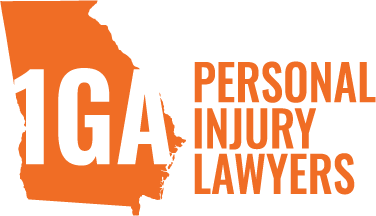The Importance of Understanding Motorcycle Accidents and Your Legal Rights
Motorcycle accidents can happen in an instant, and when they do, they often leave riders facing serious injuries, significant financial challenges, and, in some cases, even the tragic loss of life. If you or a loved one has been involved in a motorcycle crash, it’s important to understand your legal rights. A skilled Georgia motorcycle accident lawyer can help guide you through the complex legal process and fight for the compensation you deserve.
In this blog, we will explore the factors that contribute to motorcycle accidents, the legal rights of riders, how to protect yourself in the event of an accident, and what you can do to reduce your risk of being involved in a crash.
Understanding Motorcycle Accidents and Their Impact
Motorcycle accidents, often referred to as motorcycle crashes, are significantly more dangerous than other types of motor vehicle accidents. Motorcyclists are especially vulnerable because they lack the physical protection offered by cars or trucks. The risk of serious injury or fatality in a motorcycle accident is higher compared to other types of motor vehicle traffic crashes, and the impact on victims and their families can be devastating. According to the National Highway Traffic Safety Administration (NHTSA), motorcyclists are more likely to be involved in fatal crashes than drivers of passenger vehicles. In 2023, there were over 5,000 motorcyclist fatalities in the United States, making motorcycle crashes a serious public safety concern.
The consequences of motorcycle accidents extend beyond the rider involved. They often have a profound effect on families, communities, and other road users, such as pedestrians and passengers in other vehicles. Many motorcyclists who survive crashes experience life-altering injuries that can lead to significant medical bills, lost wages, and long-term rehabilitation. Knowing your legal rights and understanding the complexities of these accidents can make a critical difference in how you recover from the physical, emotional, and financial toll.
The Risk Factors of Motorcycle Accidents
Several factors contribute to the high risk of motorcycle accidents. Understanding these risks can help riders take steps to reduce their chances of being involved in a crash.
1. Motorcycle Safety and Traffic Conditions
Motorcycle safety is a crucial consideration when it comes to preventing accidents. Unlike passenger cars, motorcycles do not have a steel frame or airbags to protect riders in the event of a crash. This makes motorcyclists more vulnerable to serious injuries, especially when crashes involve high speeds or collisions with other vehicles. Traffic conditions also play a significant role in accident rates. Riders who encounter road hazards, poor weather conditions, or reckless driving are at greater risk of an accident.
2. Single-Vehicle Crashes
Single-vehicle motorcycle crashes occur when the rider loses control of their bike without being involved in a collision with another vehicle. These crashes can be caused by a variety of factors, including rider error, road hazards (such as gravel or potholes), and mechanical failures. In many cases, riders involved in single-vehicle crashes are thrown from their bikes, resulting in severe injuries, including head injuries and fractures.
3. Multi-Vehicle Crashes
Motorcycles are often involved in multi-vehicle crashes, where another driver is at fault. In these cases, the motorcyclist may be struck by a passenger car, truck, or other vehicle. Multi-vehicle crashes are typically more dangerous for motorcyclists because they are exposed to greater risks of injury due to the smaller size of the motorcycle and the lack of protective barriers. Motorcyclists involved in multi-vehicle crashes are more likely to suffer from serious injuries such as broken bones, spinal cord injuries, and traumatic brain injuries.
4. Head Injuries
Head injuries are a leading cause of death and serious injury in motorcycle accidents. Although wearing a motorcycle helmet can significantly reduce the risk of fatal head injuries, many riders still choose not to wear them, often in states where helmet laws are not enforced. The National Center for Statistics and Analysis (NCSA) reports that head injuries are a contributing factor in a large percentage of motorcycle fatalities.
Legal Rights After a Motorcycle Accident
When a motorcycle accident occurs, the legal process can be overwhelming, especially when dealing with injuries and property damage. As a motorcyclist, it’s essential to know your legal rights and the steps you can take to protect yourself.
1. What to Do After a Motorcycle Accident
If you are involved in a motorcycle accident, the first thing you should do is ensure your safety and the safety of others. Call emergency services immediately, even if the injuries seem minor. It’s also important to gather evidence at the scene, including taking photos of the accident, exchanging insurance details with other drivers, and getting contact information from witnesses. This information can be critical when filing a claim or pursuing legal action later.
2. Liability and Compensation
In the aftermath of a motorcycle accident, determining liability is essential to securing compensation. Depending on the circumstances, the other driver may be at fault for the crash, especially if they were negligent (such as speeding or driving under the influence). A Georgia motorcycle accident lawyer can help investigate the cause of the accident, gather evidence, and build a case to prove that the other driver is responsible for your injuries and damages.
Motorcyclists may be entitled to compensation for various damages, including medical expenses, lost wages, pain and suffering, and property damage. In the case of a fatal motorcycle crash, the deceased’s family may be eligible for wrongful death compensation.
3. The Role of Helmet Use in Legal Cases
While helmet use can be a matter of personal preference, it plays a significant role in legal cases following a motorcycle accident. States with universal helmet laws require riders to wear helmets, while others only mandate helmet use for certain age groups. In some cases, failing to wear a helmet can be considered comparative negligence, potentially reducing the amount of compensation a rider can receive. However, wearing a helmet can greatly reduce the risk of severe head injuries, and having a helmet in place during an accident may work in your favor during legal proceedings.
4. Motorcycle Injury Claims
If you sustain injuries in a motorcycle crash, you may need to file an injury claim to receive compensation for medical bills, lost wages, and other damages. This process can be complicated, especially if the insurance company is trying to minimize the payout. A qualified motorcycle accident attorney can help negotiate with insurance companies and ensure that you receive a fair settlement. If the case goes to court, the lawyer will represent your interests and advocate for maximum compensation.
Motorcycle Safety and Prevention Tips
While it’s impossible to completely eliminate the risk of motorcycle accidents, there are several ways riders can reduce the likelihood of being involved in a crash.
1. Wear a Helmet
Helmet use is one of the most effective ways to prevent fatal head injuries in the event of a motorcycle crash. According to NHTSA’s National Center for Statistics and Analysis, helmets saved 1,872 motorcyclists’ lives in 2020 alone. Even if your state doesn’t have a universal helmet law, it’s crucial to wear a helmet that meets safety standards. Helmet use is a simple yet vital way to protect yourself on the road.
2. Take a Motorcycle Safety Course
Riders who are new to motorcycles or looking to improve their skills should consider taking a motorcycle safety course. These courses teach valuable defensive riding techniques, proper handling of the motorcycle, and how to avoid common hazards on the road. In some cases, completing a safety course may even result in insurance discounts.
3. Be Aware of Road Conditions
Motorcyclists should always be aware of their surroundings and the condition of the road. Hazards like potholes, gravel, and wet roads can be particularly dangerous for motorcycles. Riding defensively and anticipating potential hazards can help reduce the risk of accidents.
4. Stay Visible
Motorcyclists are often overlooked by other drivers, especially in busy traffic. Wearing bright, reflective clothing and using headlights during the day can help increase visibility and reduce the likelihood of being involved in a collision with other vehicles.
Motorcycle Accident Statistics and Trends
The statistics surrounding motorcycle accidents are both alarming and informative. In 2023, motorcycle accidents accounted for approximately 14% of all traffic fatalities in the United States. Motorcyclists were involved in over 8 million vehicle miles traveled, with many accidents occurring during high-traffic periods or on highways. The Fatality Analysis Reporting System (FARS) and Crash Report Sampling System (CRSS) are valuable resources for understanding the trends and causes of motorcycle accidents, as they provide detailed reports on the circumstances surrounding each crash.
1. Motorcycle Fatalities
The number of motorcycle fatalities has remained consistently high over the years. According to the Federal Highway Administration, there were 5,014 motorcyclist fatalities in 2023 alone. This stark statistic highlights the risks that motorcyclists face and emphasizes the importance of improving highway safety and motorcycle safety programs.
2. Motorcycle Operators and Licensing Programs
A significant number of motorcycle accidents involve unlicensed or inadequately trained riders. The Department of Transportation and NHTSA emphasize the importance of motorcycle licensing programs to ensure that riders have the necessary skills and knowledge to safely operate their bikes. Riders who complete these programs are less likely to be involved in accidents.
Frequently Asked Questions About Motorcycle Accidents and Legal Rights
What should I do immediately after a motorcycle accident?
After a motorcycle accident, your safety and well-being should be your top priority. First, check yourself and others involved for injuries. If anyone is injured, call emergency services right away. Then, collect as much information as possible, including witness contact details, photos of the accident scene, and the other driver’s insurance information. It’s important to report the accident to the police and seek medical attention, even if you don’t feel injured. These steps will be crucial when pursuing a claim or legal action. If you’re considering filing an injury claim, it’s advised to contact an experienced Georgia motorcycle accident lawyer for guidance.
How can a motorcycle accident lawyer help me?
A motorcycle accident lawyer plays a key role in helping you navigate the complexities of your case. After an accident, an attorney can investigate the circumstances of the crash, collect vital evidence, and communicate with insurance companies to ensure you receive a fair settlement. Whether you’ve been involved in fatal motorcycle crashes or a less serious accident, an experienced lawyer will protect your rights, assist in gathering medical records, and calculate damages such as medical costs, lost wages, pain, and suffering. Additionally, a lawyer can represent you in court if necessary, advocating on your behalf to secure the compensation you deserve.
How does the failure to wear a helmet impact a motorcycle accident claim?
The failure to wear a helmet can influence your motorcycle accident claim, especially in states with universal helmet laws. In many cases, not wearing a helmet may be considered comparative negligence, which could reduce the amount of compensation you receive. However, helmet use significantly reduces the severity of head injuries in crashes, and wearing one can strengthen your case by showing you took reasonable steps to protect yourself. In some states, helmet use is mandatory, and not complying could lead to penalties or reduced compensation in the event of an accident.
What are the most common causes of motorcycle crashes?
Motorcycle crashes often occur due to a combination of factors, with the most common being distracted driving, speeding, and failure to yield by other road users. Many accidents involve multi-vehicle crashes, where a motorcyclist is struck by another vehicle, often because the driver didn’t see the motorcycle. Road hazards, such as potholes, gravel, or debris, also contribute to single-vehicle crashes, where the motorcyclist loses control. Poor weather conditions, impaired driving, and aggressive riding also play a significant role in increasing the risk of motorcycle accidents. Understanding these factors can help riders reduce their chances of being involved in a crash.
How can I prove that the other driver is at fault in a motorcycle accident?
Proving fault in a motorcycle accident requires gathering strong evidence and establishing the other driver’s negligence. A motorcycle accident lawyer can help by collecting police reports, witness testimonies, surveillance footage, and photographs from the accident scene. Additionally, evidence such as traffic citations issued to the other driver and expert witness statements may be used to show that they were at fault. In cases involving vehicle miles traveled or traffic fatalities, detailed accident reconstruction and fatality analysis can further help determine fault and support your case.
How does the Fatality Analysis Reporting System (FARS) help in motorcycle accident cases?
The Fatality Analysis Reporting System (FARS), managed by the National Highway Traffic Safety Administration (NHTSA), collects and analyzes data on motor vehicle crashes, including those involving motorcycles. FARS data can provide valuable insight into the patterns and causes of motorcyclist fatalities, including details about crash circumstances, road conditions, and the types of vehicles involved. This data is often used by motorcycle accident lawyers to strengthen a case by highlighting trends in accidents and establishing liability.
Can I file a claim if the motorcycle crash was caused by road conditions?
Yes, if a motorcycle accident was caused by hazardous road conditions, you may be able to file a claim against the entity responsible for maintaining the road, such as a local government or highway department. This is especially common in cases of single-vehicle crashes, where a rider loses control due to issues like potholes, loose gravel, or improperly marked lanes. Proving liability in these cases may require expert testimony, accident reconstruction, and evidence from the Crash Report Sampling System (CRSS) to show that the road conditions directly contributed to the crash.
What compensation can I receive after a motorcycle accident?
After a motorcycle accident, the compensation you can receive depends on the severity of the injuries and damages sustained. You may be eligible for compensation that covers medical expenses, including hospital bills, rehabilitation, and ongoing treatment, as well as lost wages if you’re unable to work due to injuries. Pain and suffering, emotional distress, and property damage are also factors that can be included in a claim. If a loved one has been killed in a fatal crash, you may be entitled to wrongful death compensation. A skilled motorcycle accident lawyer can help determine the value of your claim based on the unique circumstances of your case.
What are some common injuries in motorcycle accidents?
Motorcycle accidents often lead to serious injuries, including head injuries, spinal cord injuries, broken bones, road rash, and internal injuries. Motorcyclists involved in crashes are particularly susceptible to traumatic brain injuries (TBIs), especially in accidents where helmets were not worn. Serious injuries in motorcycle crashes can lead to long-term medical treatments, rehabilitation, and permanent disabilities, significantly affecting the rider’s quality of life. Motorcycle safety measures, including helmet use and defensive driving, can help reduce the severity of these injuries.
How can I prevent being involved in a motorcycle accident?
While it’s impossible to completely eliminate the risk of accidents, you can take steps to reduce your chances of being involved in a crash. First, always wear a properly fitted motorcycle helmet. Taking a motorcycle safety course can improve your riding skills and help you handle difficult situations on the road. Staying visible by wearing bright clothing and using your headlights during the day is also critical, as motorcycles are harder for other drivers to see. Finally, always stay alert and aware of potential hazards on the road, including road debris, poor weather, and the behavior of other drivers.
How do traffic laws impact motorcycle accident cases?
Traffic laws play a significant role in motorcycle accident cases, as they help establish fault and determine whether a violation contributed to the crash. Motorcycle operators are expected to follow the same traffic laws as other drivers, including obeying speed limits, using turn signals, and riding under the influence of alcohol or drugs. If a traffic violation was committed by another driver, such as failing to yield to a motorcyclist or running a red light, it could strengthen the case for the motorcyclist’s injury claim. A motorcycle accident lawyer will evaluate all traffic law violations and use them to your advantage in court.
How does motorcycle accident data help improve safety?
Accident data collected by organizations like the National Center for Statistics and Analysis and the Federal Highway Administration helps identify trends in motorcycle accidents, including the most common causes, types of injuries, and vehicles involved. This data informs the development of motorcycle safety programs, road design improvements, and legislation aimed at reducing traffic fatalities. By analyzing accident trends and learning from past incidents, policymakers and advocacy groups can create strategies to enhance highway safety for motorcyclists and other road users.
Protect Yourself and Know Your Rights After a Motorcycle Accident
Motorcycle accidents can be overwhelming and life-changing, but understanding your legal rights can make all the difference in your recovery. If you’ve been involved in a crash, it’s essential to have a knowledgeable legal team by your side.
Contact a Georgia motorcycle accident lawyer at 1Georgia Personal Injury Lawyers today to protect your rights, navigate the complexities of your case, and secure the compensation you deserve.
Don’t wait—reach out for a free consultation (800) 800-8000 and let us help you take the next steps toward recovery and justice.
